Constitution Belarus amended after referendum, fear of further integration with Russia grows
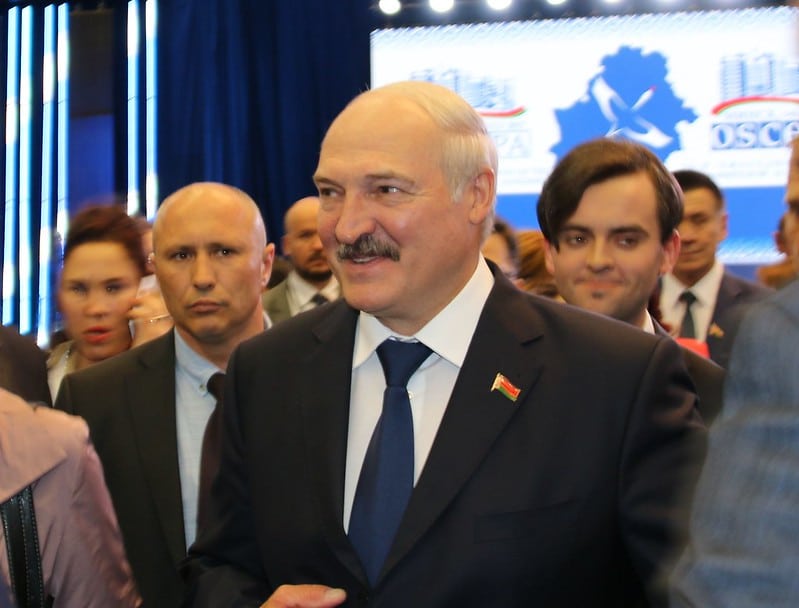
A controversial amendment to the constitution was passed in a referendum in Belarus last Sunday. The amendments give President Lukashenko far-reaching powers to remain in power until 2035. Another clause that deletes Belarus as a neutral, non-nuclear power is also controversial. It heightens fears that Belarus will be further integrated into Russia.
EU cannot let migrants at the Belarus-Poland border down any longer
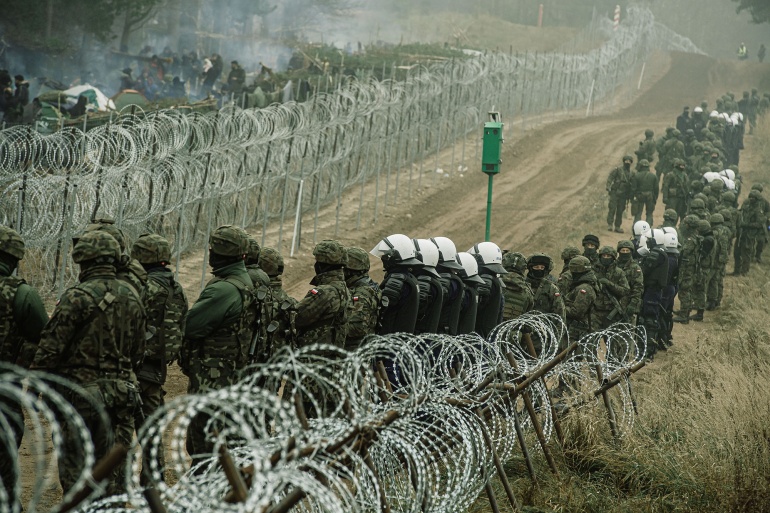
As the nights grow longer and colder, the dangerous situation at the border between Belarus and Poland intensifies. Hundreds, or maybe thousands, of migrants huddle together on the border in hopes of crossing over to Poland to reach the EU. This is a result of a ploy by Belarus's President Lukashenka to fly out migrants from the Middle East and Africa to Minsk with promises of guiding them towards EU territory.
Belarus a country to live in
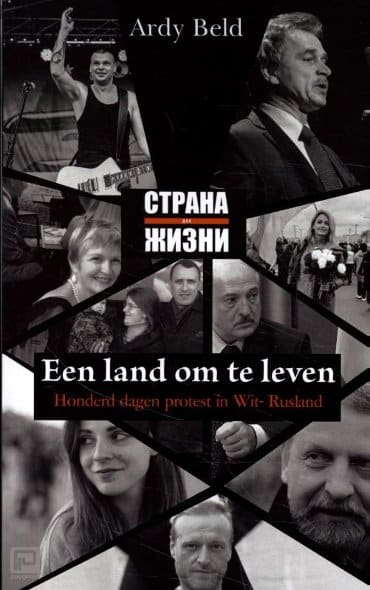
Following the falsified 9 August 2020 election results, people in Belarus took to the streets en masse to demonstrate against Aleksandr Lukashenko's autocratic regime. Due to extreme police brutality and numerous arrests, demonstrations with hundreds of thousands of participants slowly turned into smaller local protests. Yuri Stylski, musician from Brest: 'I was invited to play in a residential area in the autumn. There were many families with children. In the afternoon, a theatre group performed a play. In the evening, I was playing a few songs when someone shouted, "The beachcombers are there, quick away!" One of the residents hid me in his flat just until they had left again. Of course, they knew where to find me anyway. The police organised crime department forced me to sign a protocol stating that I would no longer act. Since then, we have only done live streams.'
Belarus: need for hope after more than 100 days of protests and violence
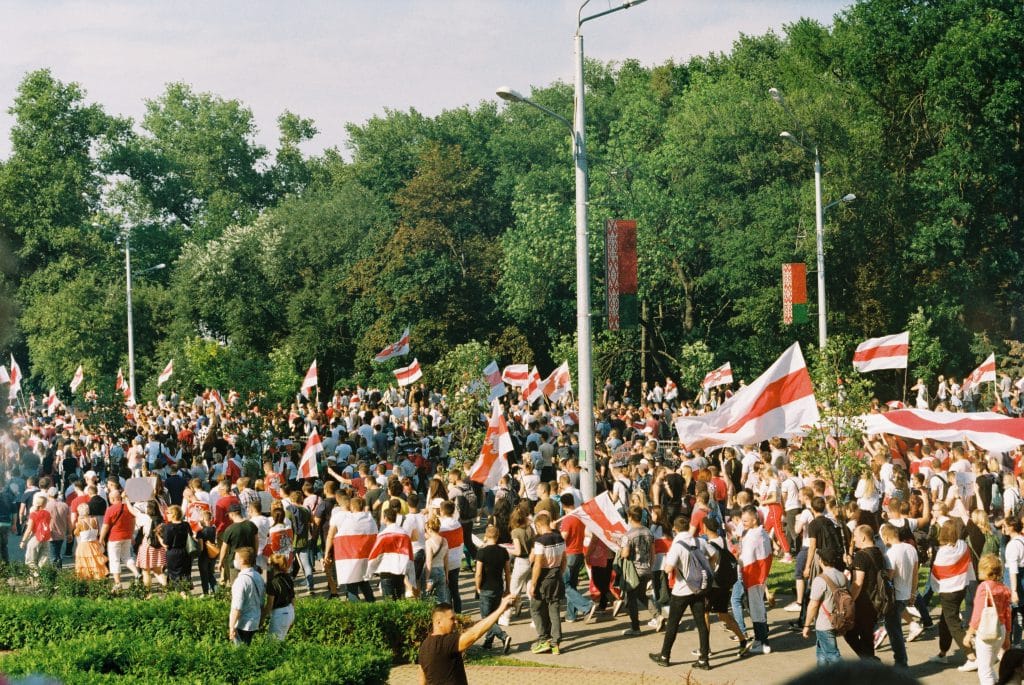
It has been more than a hundred days since Belarus went to the polls. For more than a hundred days, people have been taking to the streets on a daily basis against the result announced at the end of that ballot: the victory of incumbent President Alexandr Lukashenko. His challenger, Svetlana Tikhanovskaya, is now in exile. This month, she visited the Netherlands, where she continued to call for solidarity with the protesting Belarusian people.
Ongoing protests in Belarus
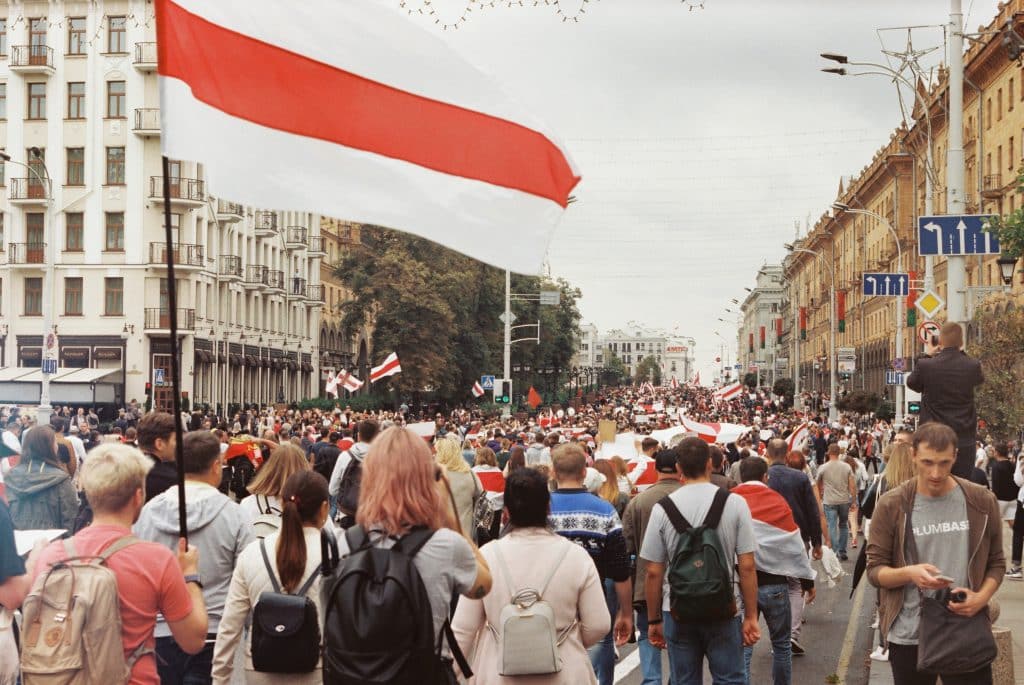
Since May 2020, the Belarusian people have been protesting against the re-election of President Aleksandr Lukashenko. With a 26-year term, Lukashenko is one of the longest-serving - and most autocratic - heads of state in Europe. Although the Belarusian people have spoken out against electoral fraud under Lukashenko many times before, the current protests are unprecedented - never before have so many people mobilised in such a sustained and organised manner against the incumbent president. Why are the protests so persistent just now? And what kind of strategy should the European Union adopt regarding the protests in neighbouring Belarus?
Online Political Café: the future of Belarus
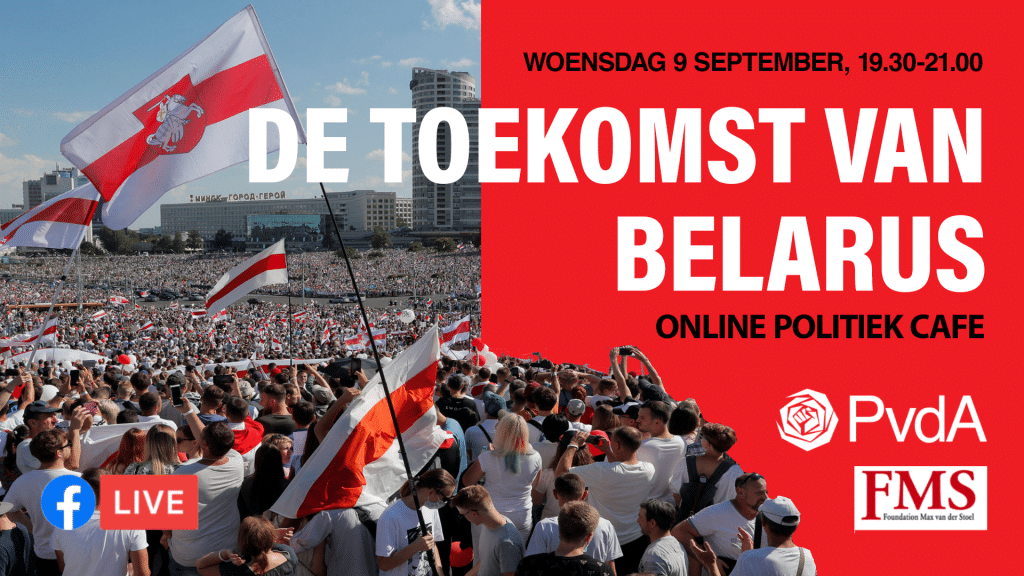
There is something unusual going on in Belarus (Belarus). Presidential elections were on 9 August and once again Lukashenko, who has been in power since 1994, won the election. But, the population is moving and speaking out and the regime seems to be under pressure more than in other years.
#westandBYyou: against repression and for fair elections in Belarus
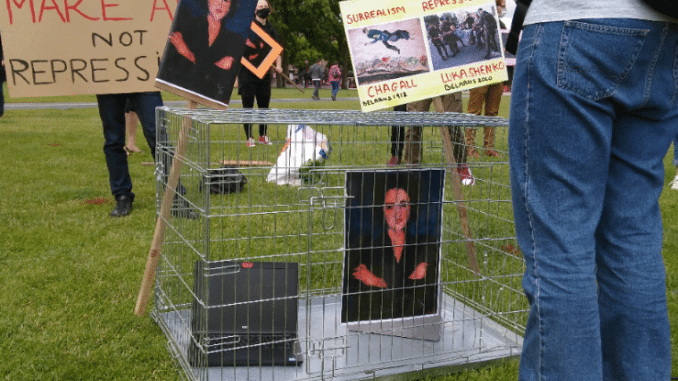
Something unusual is going on in Belarus (Belarus). Presidential elections are on 9 August and most probably the current president, who has been in power since 1994, will win again this time. But, the population is moving and speaking out and the regime seems to be under pressure more than in other years.
Five years ago, elections in the shadow of the Maidan revolution and war in Ukraine went very peacefully for Lukashenko and he extended his term without any problems. On the contrary, the elections before that, 10 years ago, were accompanied by large-scale arrests and long prison sentences, including of presidential candidates. The big difference with this year is that the arrests started even before candidate registrations were opened. For instance, a popular blogger, who did not hide his ambitions, was jailed even before registering as a candidate. Another popular candidate was arrested while collecting signatures for his candidature and subsequently not admitted as a candidate.
Belarusians tear away from President Lukashenko
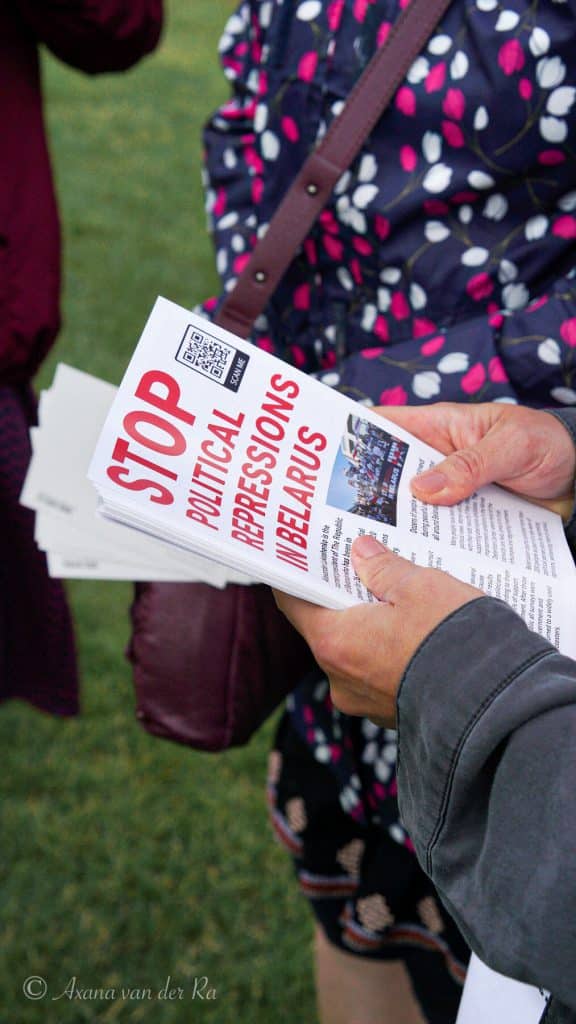
In the Republic of Belarus (Belarus), there have been protests for weeks against President Alexandr Lukashenko, who has been in power for 26 years. Democratic freedoms and values are not in his vocabulary. So far, more than 300 people, including one of his most promising challenger, Viktor Babariko, have been arrested during protests against the detention and exclusion of opposition candidates. These candidates were excluded during the presidential election on 9 August. Partly due to Lukashenko's corona policy and approach towards opposition candidates, activists, journalists, bloggers and vloggers, his support is rapidly crumbling. Harshly, the president is trying to maintain his power.
Commemoration of four disappeared Belarusians
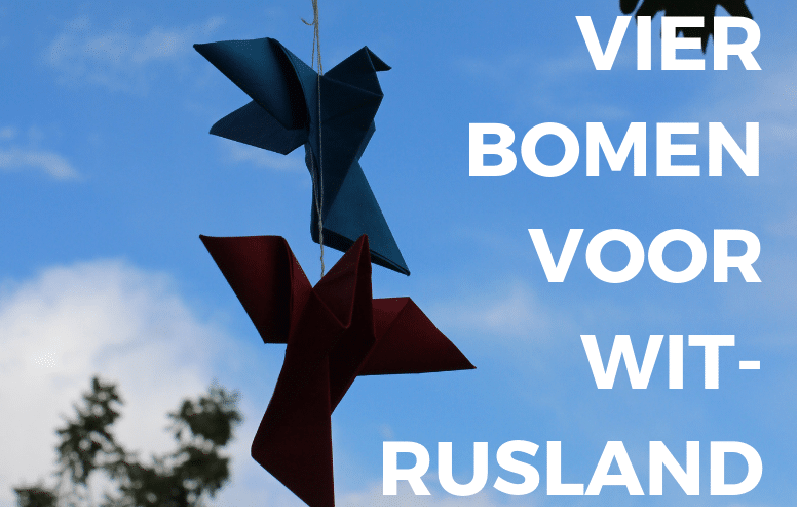
Eindhoven commemorates four disappeared Belarusians for the 12th time
Progressive Women of Eastern Europe want more cooperation
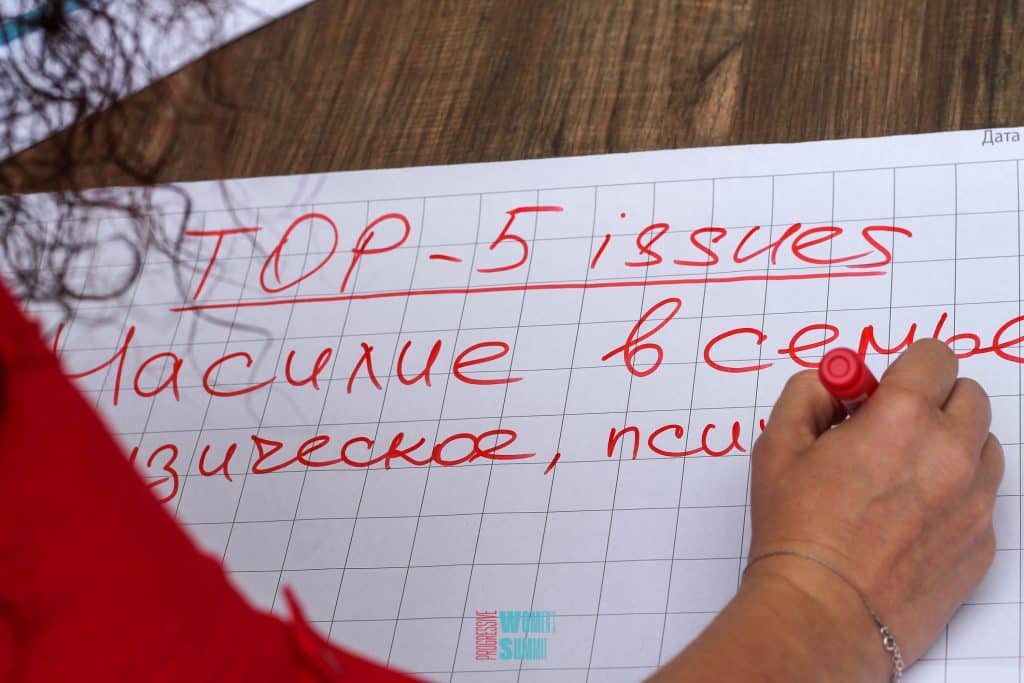
Last weekend, we organised the Progressive Women's Summit of Eastern Europe, together with the UK Labour Party and the Social Democratic Platform in Ukraine. Women from four Eastern European countries - Ukraine, Belarus, Armenia and Georgia - came together in Kyiv, to share experiences and reflect together on possible solutions to the challenges they face.

